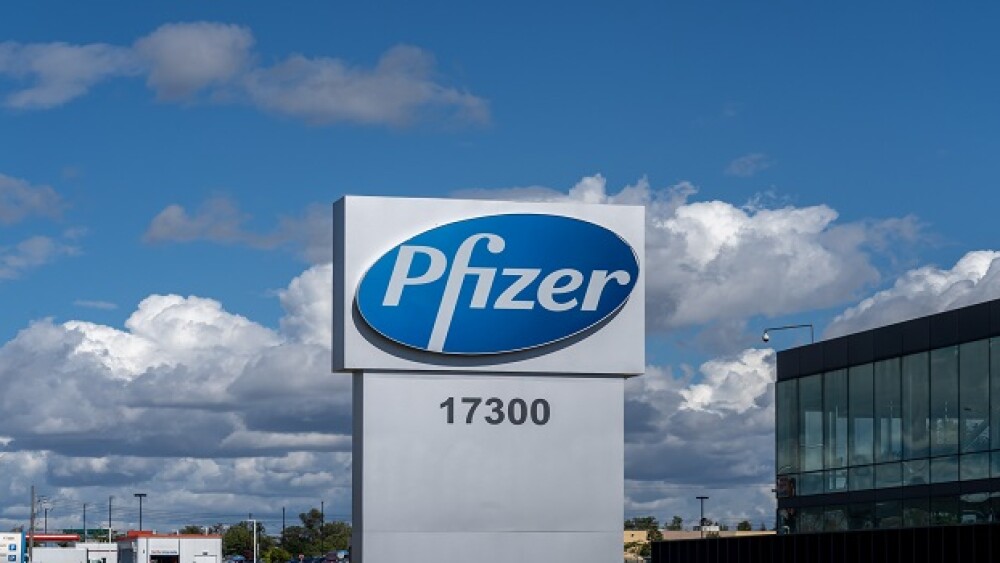Pfizer reported full-year 2022 earnings Tuesday and provided 2023 projections far below the previous year’s totals.
Courtesy of JHVEPhoto/GettyImages
One day after the Biden administration announced it will let COVID-19 emergency measures expire in May, Pfizer released full-year 2022 numbers Tuesday that reflect a collective move into a different stage of the pandemic.
The results for Pfizer and BioNTech’s coronavirus vaccine, Comirnaty, were mixed. While sales for 2022 exceeded 2021 by 3% at $37.81 billion, the company expects this to fall to $13.5 billion in 2023. This reflects a projected dose demand of 65 million, compared to 92 million in 2022. Pfizer expects to bring in $8 billion from antiviral medicine Paxlovid in 2023, down 58% from 2022.
In its earnings report, Pfizer attributed this decline to “significant government supply on hand to start the year.”
While the COVID-19 forecast and financials were mixed, Pfizer’s pipeline aspirations for 2023 are not. Highlights include:
- Etrasimod: Pfizer hopes to bring a new treatment for ulcerative colitis to the market in the second half of 2023. The FDA accepted the company’s New Drug Application for etrasimod, an oral, once-daily, selective sphingosine-1-phosphate (S1P) receptor modulator, in December 2022.
- PF-06886992: Pfizer anticipates a decision regarding of its investigational pentavalent meningococcal vaccine candidate, MenABCWY, in October 2023. A Biologics License Application was filed with the FDA in December 2022.
- RSVpreF: The FDA’s first approval of a respiratory syncytial virus (RSV) vaccine is highly anticipated in 2023, and it could be Pfizer’s bivalent candidate, RSVpreF. The FDA accepted a BLA for the vaccine in December and is targeting a PDUFA date in May 2023.
Pfizer’s pipeline was updated Tuesday to reflect 110 total programs, with 39 in Phase III and registrational studies, combined.
The company highlighted high-value pipeline programs in sickle cell disease, dermatomyositis, hematological malignancies, obesity, Type 2 diabetes and its portfolio of mRNA vaccine candidates.
Pfizer’s August 2022 acquisition of Global Blood Therapeutics brought investigational SCD therapeutics inclacumab and GBT021601 into the fold. Inclacumab, a novel P-selectin inhibitor, is currently in Phase III studies.
Overall, Pfizer reported an all-time high of $100.3 billion in revenues for 2022, with $24.3 billion in the 4th quarter alone. In 2023, the company projects more modest revenues of between $67 and $71 billion.






